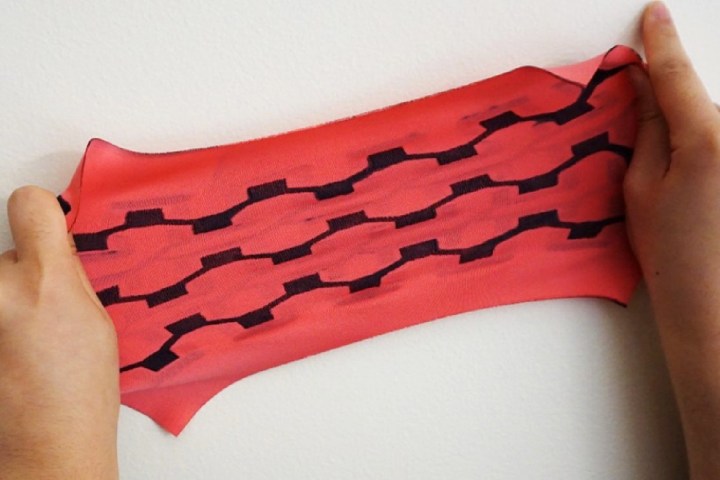
The breakthrough tech was developed by a team led by Professor Seokheun Choi. If that name sounds familiar, it’s because Choi has previously been responsible for some innovative new battery technologies, such as a paper-like microbial fuel cell designed to produce electricity when activated by saliva. “All my previous experiences and technologies on paper-based bio-batteries have been leveraged to develop, for the first time, an entirely textile-based bio-battery,” Choi told Digital Trends. “The device generated a maximum power of 6.4µW/cm2 and current density of 52µA/cm2, which are similar to other flexible paper-based microbial fuel cells.”
If you’re wondering what “bacteria-powered” means in this context, the answer is that the battery could be powered by natural bodily secretions — most obviously our sweat. That would make it perfect for a lycra-type material that could be employed to make sports wear or other types of smart clothing. While it probably won’t be rivaling your iPhone in terms of sheer battery power anytime soon, it might open the way for wearables that would be able to gather sensor data from your body and then transmit it to a separate device. A T-shirt which could monitor our workouts or a pair of socks able to track our steps? Yes, please!
Choi said that the team is currently working to improve the power and current generation for practical applications. “But it will take more time for the commercial products,” he noted.
A paper describing the work, titled “Flexible and Stretchable Bio-batteries: Monolithic Integration of Membrane-Free Microbial Fuel Cells in a Single Textile Layer,” was recently published in the journal Advanced Energy Materials.


